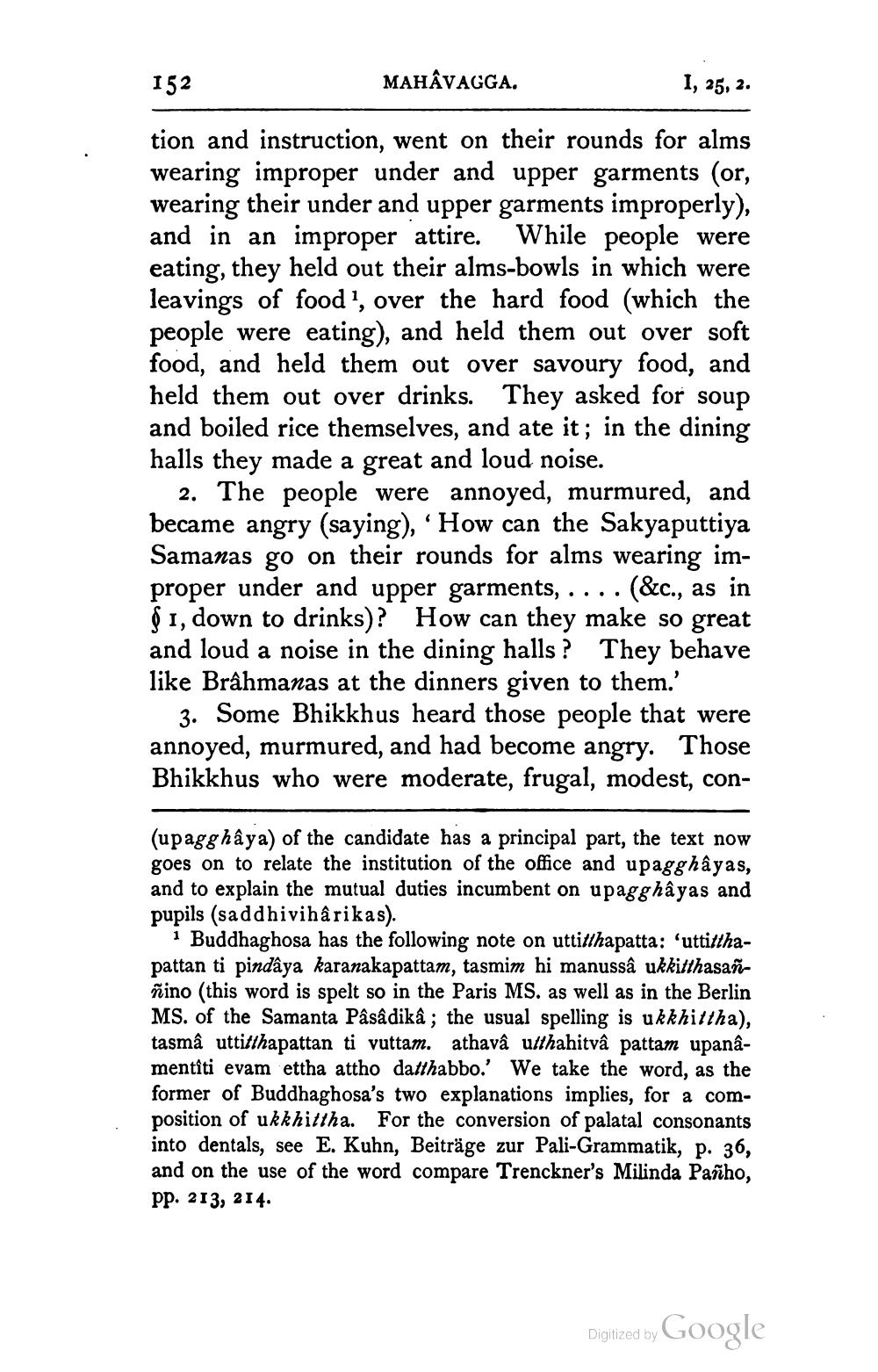________________
MAHAVAGGA.
I, 25, 2.
152
tion and instruction, went on their rounds for alms wearing improper under and upper garments (or, wearing their under and upper garments improperly), and in an improper attire. While people were eating, they held out their alms-bowls in which were leavings of food', over the hard food (which the people were eating), and held them out over soft food, and held them out over savoury food, and held them out over drinks. They asked for soup and boiled rice themselves, and ate it; in the dining halls they made a great and loud noise.
2. The people were annoyed, murmured, and became angry (saying), 'How can the Sakyaputtiya Samanas go on their rounds for alms wearing improper under and upper garments, (&c., as in § 1, down to drinks)? How can they make so great and loud a noise in the dining halls? They behave like Brahmanas at the dinners given to them.'
3. Some Bhikkhus heard those people that were annoyed, murmured, and had become angry. Those Bhikkhus who were moderate, frugal, modest, con
(upagg hâya) of the candidate has a principal part, the text now goes on to relate the institution of the office and upagghâyas, and to explain the mutual duties incumbent on upagghâyas and pupils (saddhivihârikas).
1 Buddhaghosa has the following note on utti/hapatta: 'utti/thapattan ti pindâya karanakapattam, tasmim hi manussâ ukkitthasanñino (this word is spelt so in the Paris MS. as well as in the Berlin MS. of the Samanta Pâsâdikâ; the usual spelling is ukkhittha), tasmâ utti//hapattan ti vuttam. athavâ uthahitvâ pattam upanâmentîti evam ettha attho datthabbo.' We take the word, as the former of Buddhaghosa's two explanations implies, for a composition of ukkhittha. For the conversion of palatal consonants into dentals, see E. Kuhn, Beiträge zur Pali-Grammatik, p. 36, and on the use of the word compare Trenckner's Milinda Pañho, pp. 213, 214.
Digitized by Google




